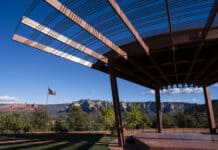New Year’s is my favorite holiday because it is the one day of the year when people come together regardless of nationality, religion, creed or culture, to celebrate together.
Cultures around the world use a host of calendars. For example, 2018 is 7527 in the Byzantine calendar; 6768 in the Assyrian calendar; 5779 in the Hebrew calendar, 4714 in the Chinese calendar; 2771 an urbe condita, aka since the founding of the city of Rome, the dating system used by the Roman Republic and Empire; 2562 in the Buddhist calendar; 1440 in the Islamic calendar; Heisei 30 in Japan; and 12018 in the Holocene calendar, which marks an approximation of the start of the Holocene geological epoch and the Neolithic Revolution — when humans began transitioning from hunter-gatherer societies into settled agricultural communities.
These calendars do not agree on the year and many do not mark Jan. 1 as the their start. Even so, the peoples of the world have collectively agreed, for the sake of commerce, conversation and convenience, to use the Gregorian calendar internationally and as the regular secular calendar in nearly all countries on Earth.
Worldwide celebrations are not simultaneous, as each time zone’s celebration is an hour apart for the length of an entire day, but seeing fireworks above Tokyo Bay, Sydney Harbor, the Blue Mosque, Red Square, the Parthenon, Big Ben and Times Square only adds to the anticipation of midnight and the calendar rollover reaching us in Northern Arizona.
The absurdity of New Year’s Eve is that we choose to celebrate an entirely contrived moment, created by assigning monumental importance on a particular time — midnight — in a particular place in our revolution around our sun — a few days after the winter solstice when Earth is on the far side of the sun from our galaxy’s center, just slightly above the galactic plane.
Regardless of all these technicalities, all human cultures have the same concept of a year, just as we do a day, and thus the changing of the new year is a profound moment for us as individuals.
The end of the year allows us to reflect on all that’s happened in our recent passage around our sun, the victories and losses, the deaths and births, the start of new enterprises and the end of old empires.
At the start of 2018, my fiance was pregnant. At the end of the year, she is my wife and we have an infant daughter who greets every morning like it’s New Year’s Day.
As she grows up, New Year’s Eve will be the one day of the year I will encourage her to stay up until midnight to watch the calendar turn over to a new date. But this year, I assume she’ll be fast asleep while my wife and I toast to 2019.
As the year ends and the new one begins, we reflect on our loved ones, offering the lost ones a final reverence and remembering that our extended family, whether living across town, across the country or serving overseas, are celebrating the new year too.
New Year’s Eve also gives us a moment to remember that whether we speak English, Basque, Pitjantjatjara, Swahili, Ainu or Kutenai, whether we whisper prayers to Allah, Mother Earth, Vishnu, Yahweh or a pantheon, whether we elect a president, choose a parliament or revere a king in Asia, Africa or North America, we are brothers and sisters, members of the same species celebrating one moment together, remembering our past and hoping for a better future tomorrow.
Christopher Fox Graham
Managing Editor



















